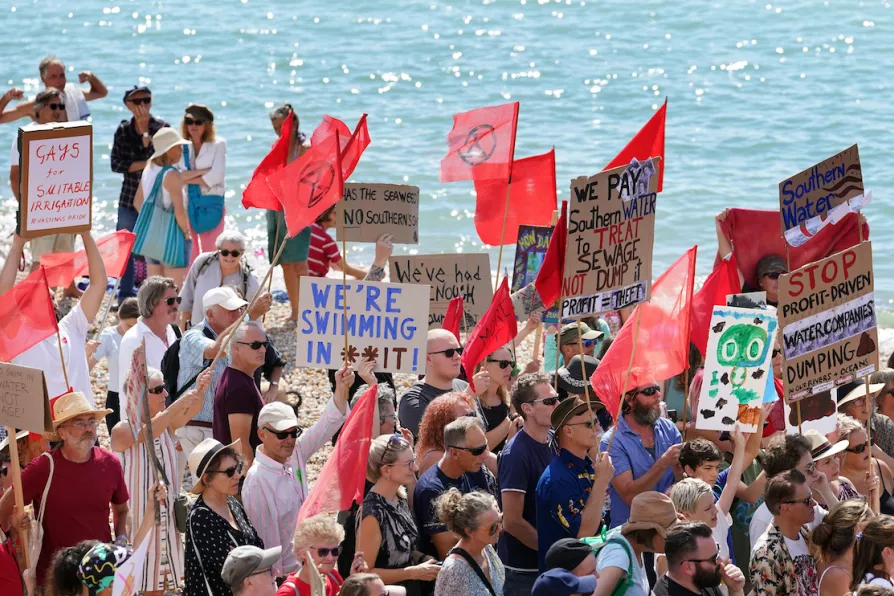Israel’s recognition of Somaliland has little to do with self-determination and far more to do with strategy, offering Israel a potential military foothold near Yemen, says JE ROSENBERG
The idea of renationalisation refuses to die
The crisis in the privatised water companies was inevitable – as private utilities will always race to the bottom with cuts to services in order to maximise profits, writes DIANE ABBOTT MP

 Members of the public and protesters from Hastings and St Leonards Clean Water Action, protest against raw sewage release incidents on the beach in St Leonards, Sussex. Picture date: Friday August 26, 2023
Members of the public and protesters from Hastings and St Leonards Clean Water Action, protest against raw sewage release incidents on the beach in St Leonards, Sussex. Picture date: Friday August 26, 2023
THE crisis in Thames Water has revived calls for renationalisation of the company as well as the entire water network.
There are reports that even this government is considering a forced renationalisation, because the financial situation is so dire.
For those of us who have long argued for renationalisation, crises at companies like Thames Water are no surprise and the case for renationalisation unanswerable.
Similar stories

Customers will bear brunt of sky-high interest rates though increased bills, campaigners warn













